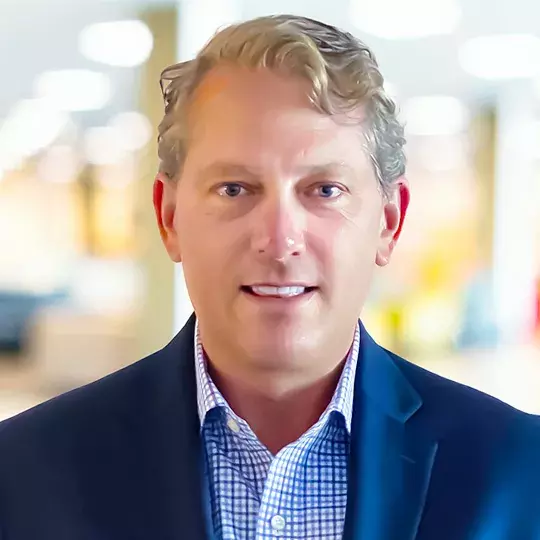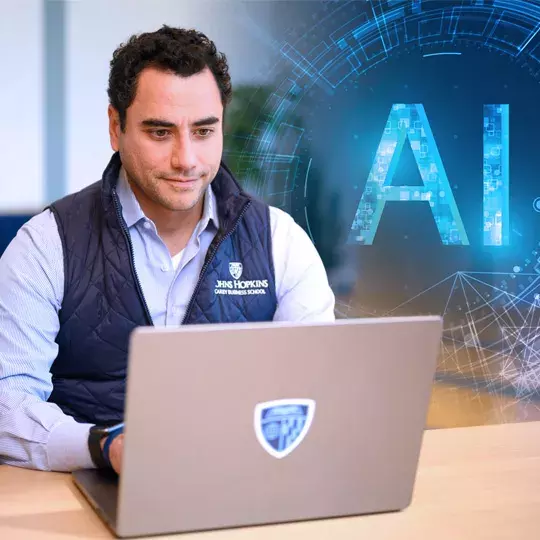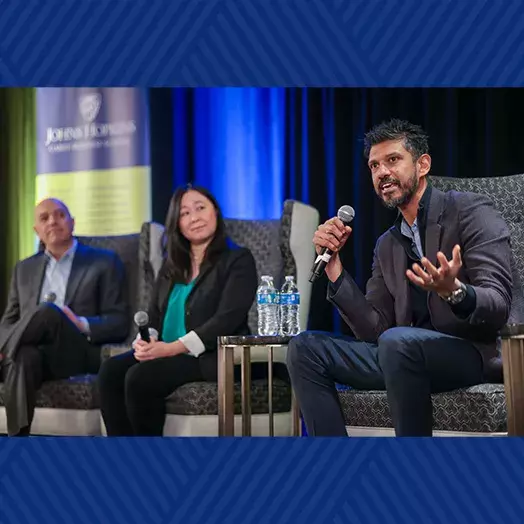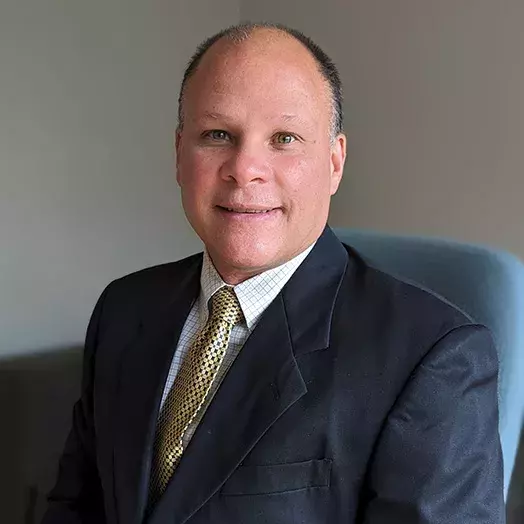It takes a lot more than a hunch for investors to know which technologies are going to be game-changers. Today, artificial intelligence is up to bat, and people like AI Capital Managing Director Andrew Maus (MBA ’16) are equipping the lineup.

Swinging for the fences with AI
When Babe Ruth “called his shot” during the 1932 World Series, appearing to point at deep center field and then deliver a home run, he solidified his place in sports history. He knew his talent and skill, and he knew what it made him capable of doing. But what would Babe Ruth be without the bat in his hand? If he didn’t have that essential tool, there would be no story to tell.
Just as not every ball player gets to bat in the big leagues, not every promising technology is a home run for an investor. It takes a lot more than a hunch to know which technologies are going to be game-changers.
Today, artificial intelligence is up to bat, and people like AI Capital Managing Director Andrew Maus (MBA ’16) are equipping the lineup.
“Every domain where humans have an impact—science, medicine, energy, industry, education, and society—will benefit from this acceleration,” said Maus.
Pitchers and catchers
In his role at AI Capital, Maus works with a team of artificial intelligence experts, corporate executives, and investment professionals to invest in revenue-generating AI software companies expected to experience rapid growth. The company focuses on AI software solutions impacting specific verticals, such as health care, life sciences, and manufacturing, to create uncommon results. Maus’ specific role and activities touch on all aspects of deal execution, including relationship management, capital introduction, advisory services, due diligence, portfolio construction, financial modeling, and valuation analysis.
“Whether through opportunities presented by the current hype around generative AI or the blending of AI technologies to cure diseases or stem climate change, the next decade holds a lot of promise prior generations were not able to seize.”
Andrew Maus (MBA ’16), AI Capital Managing Director
As managing director at AI Capital, Maus has studied scores of AI startups through his financial lens. The advice he offers entrepreneurs in the field is threefold: build a network, get real-world results, and be able to show a path to profitability quickly.
“Venture capital firms see a lot of deal flow and are quick to say no,” he said. “If you have a trusted introduction, you may have a better chance to form a relationship. Get your software out of the lab and in the real world, leveraging real-world data, so you will know if the output really has value and market fit. Then walk in [to the venture capital firm] with a few viable customers and measurable metrics. It will be the quality of the revenue, clientele, and demonstrable metrics that will de-risk your business in a VC’s eyes.”
The right equipment
Maus said, in his Carey experience, faculty expertise and a network of forward-thinking professionals made the difference.
“Big picture in 2016: The World Economic Forum had already stated that AI would be at the core of the ‘Fourth Industrial Revolution,’ and the technology was at a tipping point with computer power and the cloud advancing technologies to make it feasible to run AI systems efficiently,” he explained. So even though AI was still not quite mainstream, “Professor Jim Liew was already working with students concerning AI. He and I discussed the greater implications of where these technologies were heading. We could all see what was coming.”
What to Read Next

Article
Future-focused Carey students build for what’s next -- the AI revolutionMaus recently attended a Johns Hopkins Technology Ventures Fast Forward U event to see and hear, at the ground level, what sorts of projects students are pursuing. He hopes to continue to engage, build rapport, and network with promising entrepreneur-minded students. That event added to his optimism about what Carey students will be able to do with AI.
“I met several students and listened to their AI ideas and walked away thinking how talented and dynamic our student body is,” Maus said. “Whether through opportunities presented by the current hype around generative AI or the blending of AI technologies to cure diseases or stem climate change, the next decade holds a lot of promise prior generations were not able to seize.”
In other words, Carey students interested in AI might be able to call their shot, holding a Carey bat.


